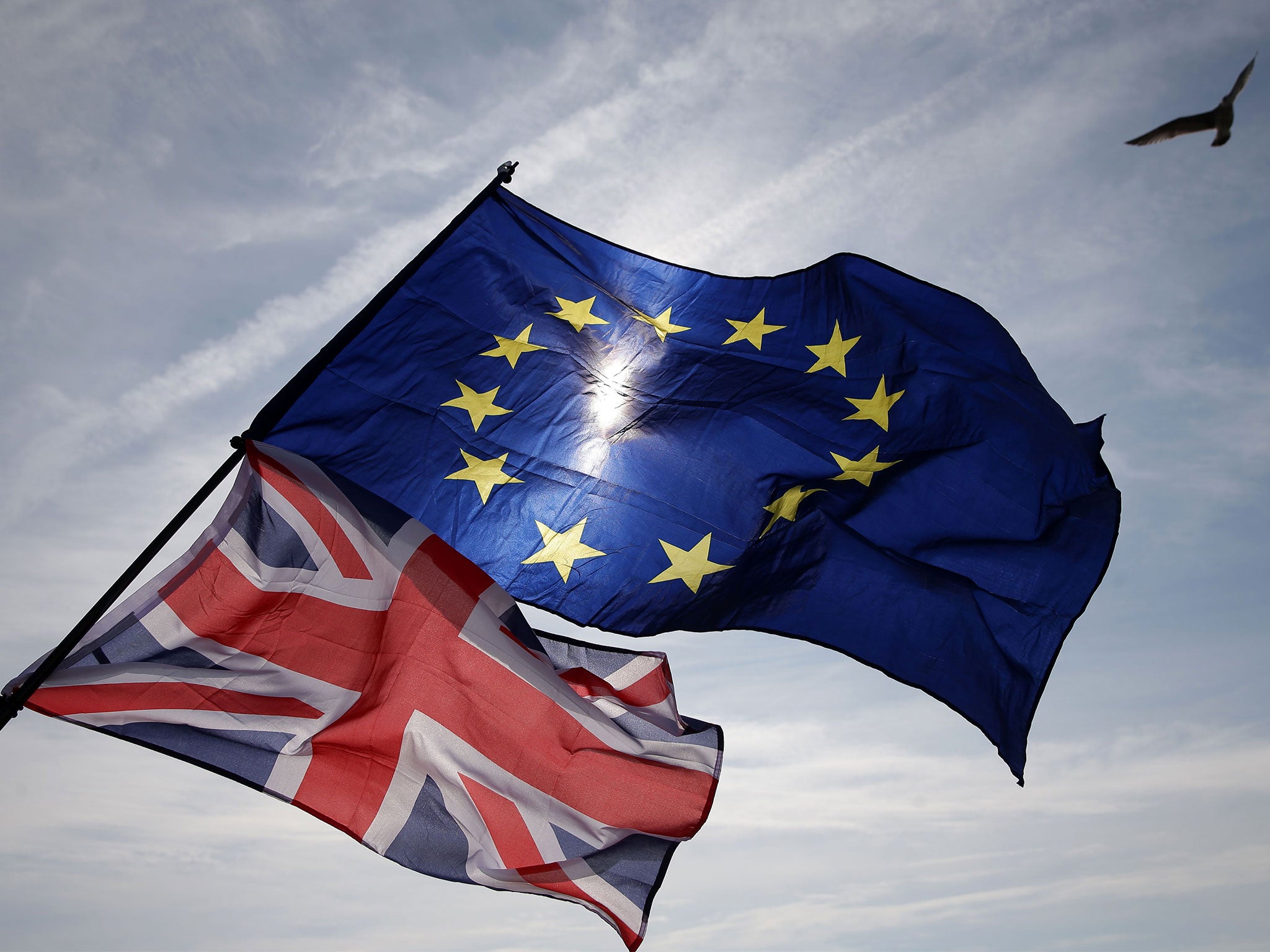Brexit: No-trade deal with EU to cost businesses £58bn a year, research finds
‘Existential threat’ posed to some UK industries by increased tariffs and customs checks, according to report

A no-deal Brexit would cost companies in the UK and the EU £58bn a year, with Britain’s financial services sector taking the biggest hit, according to new research.
The additional direct “red-tape cost” of tariff and non-tariff barriers would be £27bn to UK firms and £31bn to their EU counterparts, a report from consultancy Oliver Wyman and law firm Clifford Chance estimates.
“These increased costs and uncertainty threaten to reduce profitability and pose existential threats to some businesses,” the report stated.
Britain’s relationship with the EU would revert to World Trade Organisation rules if no deal is in place by the end of a transitional period, which is set to begin after the official Brexit deadline in March next year.
Just five sectors – finance, automotive, agriculture, food and drink, and consumer goods – would bear 70 per cent of the burden of additional costs resulting from this scenario, according to the report.
These industries are clustered in particular areas, such as financial services in London and vehicle manufacturing in Bavaria.
If the UK remains in a comprehensive customs union with the EU that provides market access (broadly equivalent to current arrangements), the costs arising from tariffs would be avoided and some of the border costs reduced, the report stated.
But that outcome appears increasingly unlikely. In the House of Commons last month, Prime Minister Theresa May gave her fiercest denunciation yet of customs union membership, saying it would “betray the vote of the people”.
The Government has ruled out remaining in the customs union because it would prevent the UK from negotiating trade deals with other nations.
However, a workable solution, in which the UK leaves the customs union but avoids a hard border between Northern Ireland and the Republic, has yet to be found.
Firms can mitigate the impact of Brexit by making more use of domestic suppliers, or in some cases changing the location of final assembly, the new report suggests.
Developing better IT systems and more warehousing capacity at borders could also help to lessen the additional costs, the authors said.
The report identified the aviation and automotive sectors as having greater ability to make these kinds of savings, compared with than financial services which do not have a supply chain in the traditional sense.
Goldman Sachs and UBS said last week they had begun transferring jobs to Frankfurt in preparation for Brexit.
The Bank of England has warned that about 10,000 finance jobs may leave Britain by the end of next year because of the country’s decision to leave the EU.
Subscribe to Independent Premium to bookmark this article
Want to bookmark your favourite articles and stories to read or reference later? Start your Independent Premium subscription today.

Join our commenting forum
Join thought-provoking conversations, follow other Independent readers and see their replies